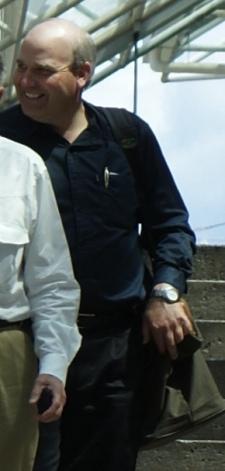Charges against two BC polygamists who had planned on using Canada’s same-sex marriage laws in their defence have been thrown out.
BC Supreme Court Judge Sunni Stromberg-Stein ruled Wednesday that former provincial attorney general Wally Oppal had no authority to appoint a second special prosecutor in the cases of Winston Blackmore and James Oler after the first special prosecutor recommended against charging the two fundamentalist Mormons from Bountiful, BC.
Stromberg-Stein ruled the appointment of the second was “unlawful” and quashed the appointment.
As a result, any decisions in the charging made by him were also unlawful.
Provincial Criminal Justice Branch spokesman Neil Mackenzie says the branch will need time to review the judgment before deciding on further action.
Blackmore and Oler’s lawyers argued before Stromberg-Stein earlier this year that the law states the decision of the first special prosecutor was final and binding.
The judge agreed.
Oler and Blackmore petitioned the court to stay the charges, arguing that Oppal had gone “special prosecutor shopping” until he found someone who would proceed with charges.
“This is exactly the type of interference with the charge approval process that the [prosecutors law] and the special prosecutor scheme are meant to prevent,” Stromberg-Stein ruled.
Blackmore and Oler, leaders of two separate factions of the Fundamentalist Church of Jesus Christ of Latter Day Saints, were arrested earlier this year and charged with one count each of polygamy.
Blackmore was accused of having 20 wives, and Oler two.
Blackmore and Oler were arrested at their Bountiful, BC commune Jan 7.
They are rival religious leaders in the polygamous Fundamentalist Church of Jesus Christ of Latter-day Saints community of Bountiful in southeastern BC.
After his arrest, Blackmore claimed there are tens of thousands of polygamists across Canada. He maintains his religious sect is being singled out, disregarding his right to religious freedom.
Polygamy charges can carry a maximum penalty of five years in prison on conviction.
Oler’s lawyer had said the case will be a test of Canada’s polygamy laws, and was expected to wind up in the Supreme Court of Canada.
Blackmore’s former lawyer, Blair Suffredine, previously suggested the defence could invoke the right to same-sex marriage in Canada. Canada’s Parliament extended full marriage rights to same-sex couples in 2005.
Oppal, who was not re-elected in BC’s last provincial election, held that some legal experts believe polygamy charges won’t withstand a constitutional challenge in Canada over the issue of freedom of religion.
Oppal said at the time of the arrest that he believes polygamy is an offence in law, and that the case is about the exploitation of women.
Blackmore was long known as “the Bishop of Bountiful.”
He runs an independent group of about 400 people in the hamlet only hundreds of metres from the US border.
He once ran the Canadian wing of the Utah-based FLDS but was ejected by Prophet Warren Jeffs.
Oler is the bishop of Bountiful’s FLDS community and is one of Jeffs’ followers, who was convicted by a Utah jury in 2007 on two counts of first-degree felony rape as an accomplice.
FLDS members practice polygamy in arranged marriages, a tradition tied to the early theology of the Mormon church. The mainstream church renounced polygamy in 1890, but several fundamentalist groups left the main church in order to continue the practice.

 Why you can trust Xtra
Why you can trust Xtra


